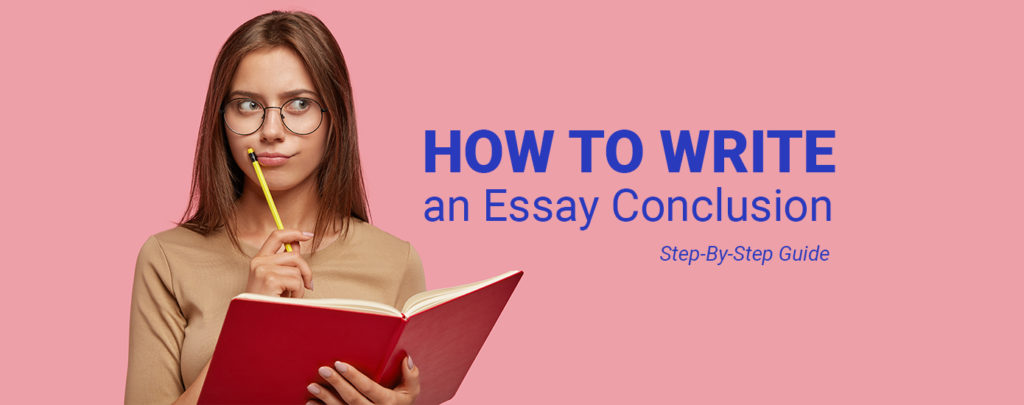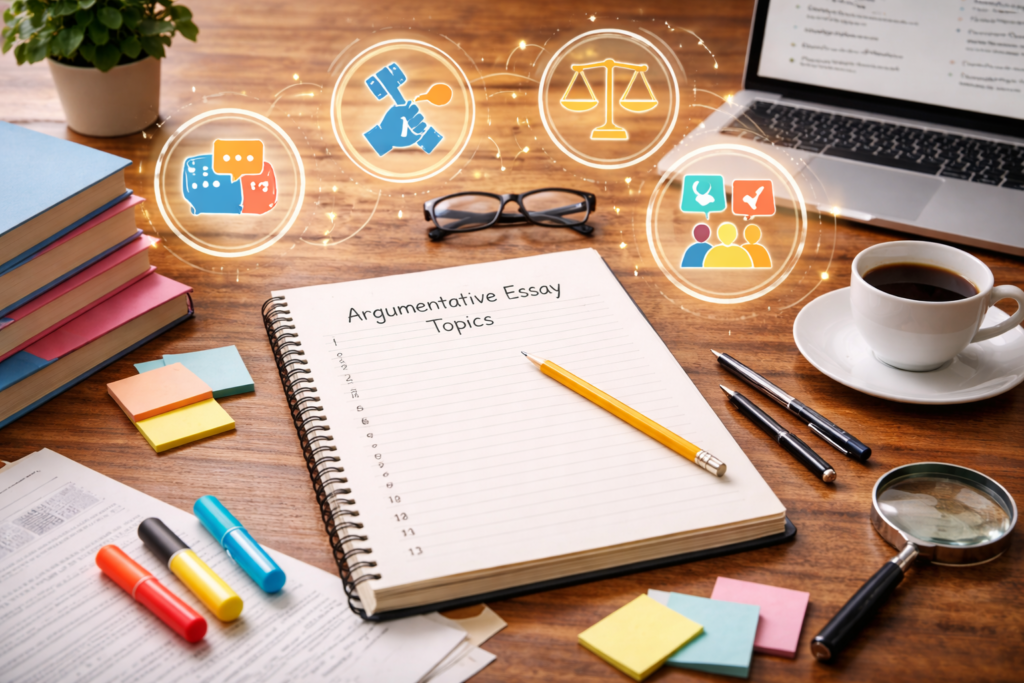How to Write a Conclusion for an Essay – Useful Tips & Hacks
In this article:
One of the essential aspects of any essay is its structure. Starting from a general introduction, leaning towards statement and broad explanation of your arguments, and, finally, ending with a substantial conclusion – there is a formula, using which you can upgrade your paper, making it organized and pleasant to read.
There is a common misbelief, according to which conclusion is the least important part of the text – which, of course, is not true. Each structural element of the document bears a particular duty and invests in the quality of the final work. While an introduction should engross the reader into exploring the following content of the essay, a conclusion should draw a line under it, clarifying the results of your work, explaining its importance, or putting a ground for further research on the topic.
For students who struggle with composing a substantial conclusion or any part of their essay, the option to order a paper from a professional writing service can be a lifesaver. This option is especially attractive when time constraints or uncertainty about the assignment’s requirements make the writing process overwhelming. By choosing to order a paper, students can receive a model essay that demonstrates the ideal structure, argumentation, and conclusion style, which can be a valuable learning tool. However, it is important for students to use such services responsibly. The ordered paper should serve as an example or guideline for writing their own essay, rather than being submitted as their own work, to ensure academic integrity and personal growth in writing skills.
Still, what is meant under “substantial conclusion”? What should the ending consist of in order to decently finish the essay? Here are the tips and recommendations that you’re encouraged to use while writing your perfect essay copestone. And in case you don’t feel like going deep into the topic, our assistance would be a perfect solution to your problem.
Your Certain Conclusion Do’s
🍏 Draw an essential bottom line
Being the final part of the essay, a conclusion should be an apparent outcome of the points, arguments, facts you’ve listed in the text’s body. The most obvious – and stylish – way to finish your paper would be to synthesize everything you’ve written in a single paragraph, drawing a bottom line to your work.
Yet, try not to make the conclusion repeat everything you’ve previously said without having a certain output. Compress your whole essay into a few sentences, leaving only the most essential information and connecting it together, showing a linkage between the reasoning you’ve put inside the text. That would additionally emphasize the research you’ve made when creating the paper, and win you a few points of your professor’s respect.
🍏 Leave space for further topic investigation
When dealing with the topic too broad to be covered in a single essay, you can mention its complexity in the conclusion. Mention how the problem you’ve reviewed is connected to the actual state of things, how it influences the world around you, or try to forecast how it will change with time.
Still, be careful – the edge between opening a new research theme and not resuming your essay’s problematic is very thin. How to write a conclusion for an essay? Make sure it adequately summarizes your work, and only then demonstrate your acquaintance with a broader context.
🍏 Explain the importance of the conducted work
You shouldn’t praise yourself in the conclusion, but you as well shouldn’t downplay your efforts. Choose the golden mean and overlook your paper in a cold-eyed way. What did it bring to the discussion? What established topics did it challenge? Could your essay be unraveled into a bigger, more substantial academic work?
Your work, despite its small size, bears a scientific value to the topic’s exploration. Demonstration of this fact would be a solid reinforcement of what you’ve said in the main text’s body – which would lead to a higher score from your professor.
Your Certain Conclusion Don’ts
👎 Introduction of new arguments
Even the word “conclusion” suggests that this part of the text should only summarize what was written earlier in your paper. A glaring mistake would be to bring new arguments, that didn’t find their way into the text’s body, and to let them close your essay without actually concluding it.
It’s OK to overlook the work you’ve done – but refrain from adding new thoughts that wouldn’t find their development in the conclusion.
👎 Duplication of the essay’s introduction
There’s a difference between reviewing your handiwork and repeating the goals you’ve highlighted in the introduction: the first option is recommended, while the second should be avoided. Spot the difference, and don’t waffle in the conclusion – instead, overthink the value of your essay and demonstrate it!
👎 General phrases OR literal recap of your arguments
Those who want to learn how to write a conclusion paragraph for an essay shouldn’t use too broad & loud statements, transitional phrases like “In this paper,” “In conclusion,” “To sum up,” as they do not bring value to your text and only weaken the expression from your arguments’ section. At the same time, do not repeat your arguments – the conclusion part is not where you continue your discussion, but where you summarize its outcome.
Those two excesses would do a poor job closing your essay. Again, try to walk the line between these options and describe the work you’ve done in a light, cursory manner. Feel like too much information is poured out on you? Then your perfect solution is to order our writing services!
Which Essay Conclusion Type to Choose
There are numerous pieces of advice we’ve shared with you about how to write conclusion paragraph for an essay, some of which might be colliding. The optimal way to use this article would be to figure out the best ending type on your own when writing an essay. Answering these questions will allow you to understand the specificity of the work you’re conducting.
🤔 Is it a simple information collection, or a serious research work summarized in a few words?
🤔 How proficient are you in the topic?
🤔 Is the problem solved, or it implies further analysis and exploration?
A poorly composed conclusion will lower the final impression on the work you’ve conducted, even if the central part of the text was extremely accurate and neat. Therefore, to compose the perfect conclusion is as important as to write any other part of the text. Figure out the best approach to it among our suggestions, and get that A+ for your essay!
How Long Should a Conclusion Be?
The length of the concluding part of your essay depends on the overall essay requirements. It’s essential to fit the size mentioned in the instructions of the task. Since you have to compose all key takeaways of your text and not include any new data, the final part should be brief. An effective conclusion for an essay should be around 15% of the whole paper. For example, if the essay is 2000 words, the conclusion should have 250 words. How many sentences are in a conclusion? Around 3-5 sentences.
The best way to improve the conclusion is to go back to other parts and revise them. Start with the thesis and try to rephrase it, developing the version you have in the introduction. Move to the next part of the structure and check the body paragraphs. Analyze them to find key takeaways used to support your argument. How to write a good conclusion for an essay? Outline data related to the main subject. Don’t just list the points but make sure they are connected and lead to a clear end. How to write a conclusion for an essay? Put a strong sentence that shows how significant the main argument is. Also, stay away from cliches like “Summing up…” or “To sum up…” Form your statements without these phrases, and your conclusion will look stronger.
With us, you will submit your paper on time











